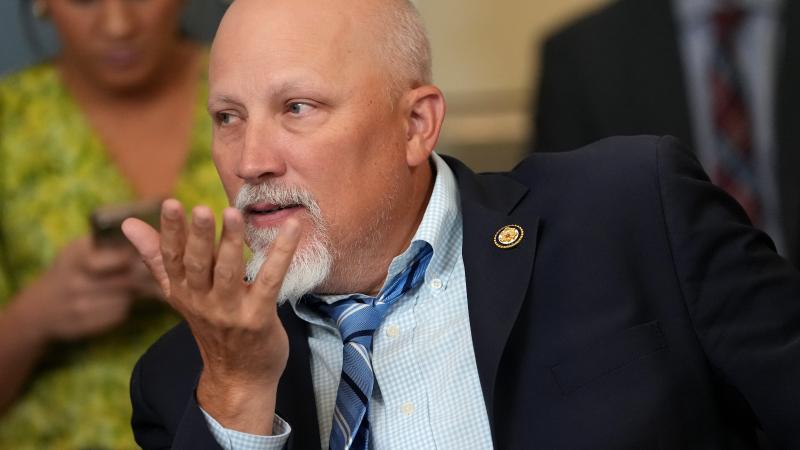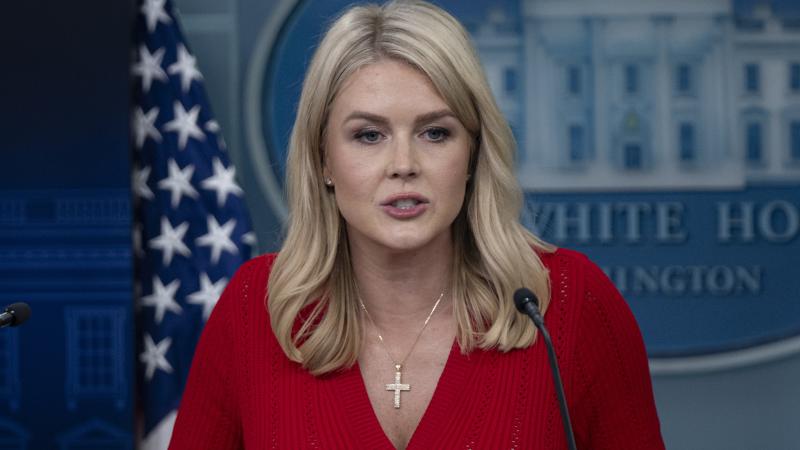In Ga. governor's race, Perdue hits Kemp for $1.5B to Soros-tied Rivian; EV startup's shares plunge
"This may be the worst deal I've seen in my business career," said former Sen. David Perdue, who headed two Fortune 500 companies before entering politics.
A scandal is brewing in Georgia's Republican gubernatorial primary, with candidate and former Sen. David Perdue accusing incumbent Gov. Brian Kemp of engaging in shady backroom deals and lining the pockets of liberal megadonor George Soros as part of a massive new economic development project in the Peach State.
"This may be the worst deal I've seen in my business career, honestly," Perdue told the "Just the News, Not Noise" television program on Friday. "This was just done the wrong way. And I've called the governor out on that, and we've had no response."
Earlier this week, state and local officials in Georgia inked a deal to dole out $1.5 billion of incentives to electric vehicle startup Rivian for it to build a $5 billion manufacturing plant east of Atlanta that will create 7,500 jobs.
The incentives include major tax credits, a 25-year no-cost lease, and more than $198 million in site and road improvements on nearly 2,000 acres.
The incentive package is by far the largest Georgia has ever offered to a company and, according to Greg LeRoy, executive director of Good Jobs First, the largest ever given by any U.S. state to an auto plant.
New questions surfaced about Kemp's deal and Rivian's economic viability on Monday, with the company stock price plunging 13% following reports that Ford will sell 8 million shares.
Perdue on Friday described Rivian, a California-based company committed to fighting climate change, as "woke," noting Soros is a major investor. He made a similar point earlier this week.
"Think about how many small businesses in Georgia could be helped for this kind of money, instead of padding George Soros' pockets," said Perdue. "Kemp gave away the farm to a woke corporation for something the locals don't even want, and hardworking Georgians are left footing the bill."
Late last year, Soros bought about 20 million shares of Rivian worth about $2.1 billion at the time, according to securities filings revealed in February. The purchase made Soros, among the country's most prominent backers of progressive causes, one of the biggest investors in Rivian.
The deal to build the Rivian electric vehicle plant was first announced in December. Since then, Kemp has touted it as the biggest economic development project in Georgia history.
"I support 7,500 great-paying jobs going to rural Georgia, to an automobile manufacturing facility," Kemp said during a debate on Sunday. "I'm going to always be for that."
The 7,500 jobs will be created by Rivian when the plant is fully built by the end of 2028, with an average salary of $56,000 a year.
Perdue said this week the plant will end up costing Georgia about $200,000 per job, basing that calculation on the state effectively paying $1.5 billion in taxpayer dollars for the plant to be built.
The former senator, who headed two Fortune 500 companies before entering politics, on Friday blasted the Rivian deal as bad business for Georgia.
"There's no way at a billion and a half dollars this can be an economically feasible deal for the taxpayers with a decent return," he said. "And they did not look at the infrastructure and all the other things necessary to do this."
"Looking at a company like Rivian, an unproven company," he continued, "we don't even know they're going to be able to be successful."
Rivian reported $2.5 billion in losses for the fourth quarter of last year. This past week, its stock was worth about six times less than its $180-per-share peak in November.
On Monday, amid reports of major investors such as Ford selling their Rivian shares, the electric vehicle company's share price hit a new low, dropping below $25.
A major reason for the company's struggles has been its inability to meet production expectations. Last year, Rivian produced 1,015 vehicles, falling short of its target of 1,200. This year, the company halved its planned production output for 2022 from 50,000 units to 25,000.
The new Georgia plant is expected to be capable of producing up to 400,000 vehicles a year at its operational peak.
Perdue said Kemp and others backing the Rivian deal "didn't engage the local community," alluding to how some Georgians are worried about overdevelopment, loss of farmland, and general disruption to their daily lives.
Beyond the merits of the Rivian deal, Perdue has taken issue with the process of getting to an agreement.
Kemp's latest budget proposal included $125 million for land and training costs for the Rivian plant, which will span 1,978 acres in Morgan and Walton counties.
"They sold this land at $60,000 an acre," said Perdue. "Now farmland in that part of the state, that's about six to seven times what it's really worth."
Perdue noted that one person who stands to benefit from the Rivian land deal is "the head of the development board, a friend of the governor." He was referring to Alan Verner, who along with his four siblings owns about 675 acres of property earmarked for the Rivian plant — about one-third of the total area.
The Verners could pocket more than $20 million combined, according to the Atlanta-Journal Constitution, which described Alan Verner as integral to bringing the $5 billion plant to Georgia.
Verner was serving as chairman of the Joint Development Authority (JDA) of Jasper, Morgan, Newton, and Walton counties when talks to sell the land began early last year. He vacated the position in August, when talks were well advanced.
Ethics experts have expressed concern about a potential conflict of interest, noting Verner was both a prominent public official and a large landowner, especially since the Rivian deal has been widely reported as being brokered by state and local authorities in secrecy.
"So, this is a good old boy deal done in the dark of night, and people down there are upset about it because they were not consulted about it," said Perdue.
Last year, Kemp appointed one of Verner's brothers to the Franklin D. Roosevelt Warm Springs Memorial Advisory Committee.
Just the News was unable to get in touch with Verner, but a JDA spokesman told the Journal-Constitution that Verner "did not receive any preference or advantage" in selling his land.
State officials added it was unlikely Verner could have influenced Rivian's decision to choose the site of the plant, and Verner's attorney and a JDA official said, "Verner took all the necessary steps to avoid a conflict of interest, including abstaining from votes on Rivian and leaving the room when the board discussed Rivian," according to the Journal-Constitution.
Just the News reached out to Kemp's office to respond to Perdue's criticism this week. A spokeswoman for the governor responded with a statement touting the Rivian deal's economic benefits for Georgia.
"The state's agreement is consistent with previous major corporate investments, such as those made by successful projects with incredibly positive community impact like Kia Motors and SK Innovation," said Katie Byrd, director of communications for Kemp. "Because of the strategic design of these agreements, taxpayer dollars are protected in the unlikely event company goals are not met. In fact, this agreement is among the strongest the state has ever secured."
Byrd also stressed that the agreement "ensures that the project will follow environmental standards and addresses many other pieces of constructive feedback from Georgians closest to the site — including a mechanism for long-term feedback as Rivian builds its new Georgia home."













